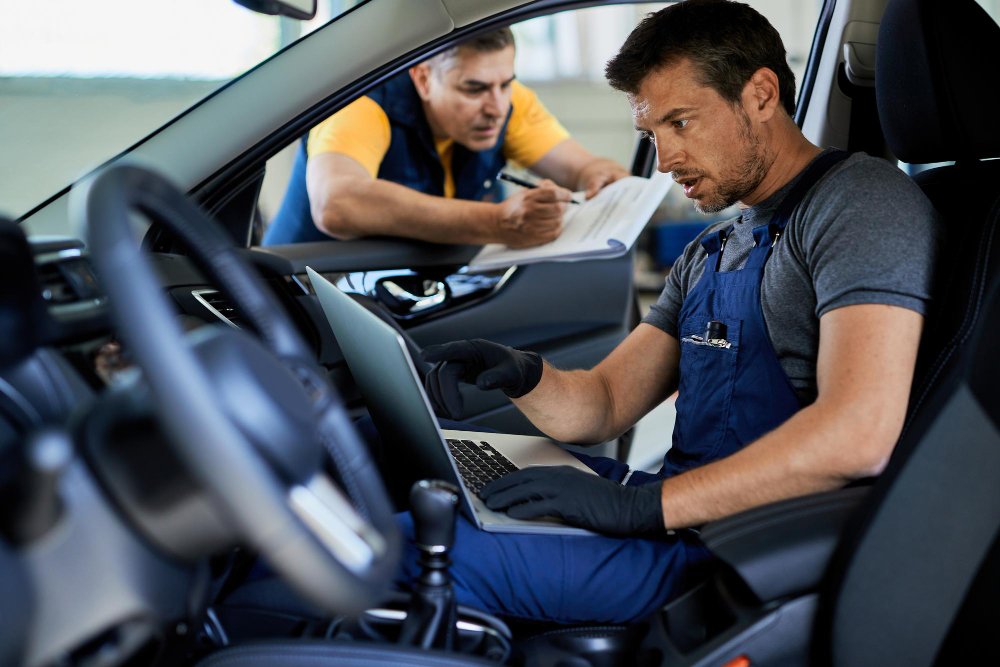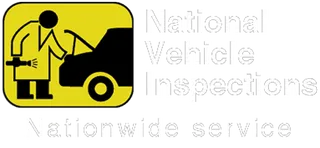A Detailed Guide on Car Inspections in the UK
- August 2, 2023
- Blog
What is Car Inspection?
In the United Kingdom, a car inspection refers to the Ministry of Transport (MOT) test, which is a mandatory annual examination of the roadworthiness and safety of most vehicles. The MOT test ensures that vehicles on the road meet certain standards for emissions, safety, and overall condition. The MOT is a legal requirement for most vehicles over three years old. It is conducted by authorised MOT testing centres, including garages and service centres approved by the Driver and Vehicle Standards Agency (DVSA). During the MOT test, a certified MOT tester will inspect various aspects of the vehicle, including but not limited to:
- Brakes: Checking the condition and efficiency of the braking system.
- Signals and Lights: Checking the functionality and operation of all lights, including headlights, taillights, indicators, brake lights, and other lighting systems.
- Wheels & Tires: Checking tire pressure, tread depth as well as the overall condition.
- Steering & Suspension: Inspection of the suspension & steering components.
- Exhaust Emissions: Verifying regulatory compliance by measuring emissions.
- Seat Belts and Seats: Checking the condition and functionality of seat belts and the security of seats.
- Windshield and Mirrors: Verifying that the windshield is free from cracks or chips and that all mirrors are in good condition.
- Body and Chassis: Examining the vehicle’s body and chassis for rust, corrosion, and structural integrity.
- Registration Documents: Ensuring the vehicle’s identification number (VIN) matches the registration documents.
Table of Contents
If the car/vehicle passes the MOT test, the MOT certificate is issued, valid for one year from the test date. If they fail the test, the owner will receive a list of identified issues that must be rectified before a retest can occur.
It’s essential to keep up with your car’s MOT schedule to comply with the legal requirements and ensure your vehicle is roadworthy. Failing to have a valid MOT certificate can result in penalties, and driving a vehicle deemed unroadworthy is dangerous and could lead to accidents or legal consequences.
How Long Does a Car Inspection Take?
How long a car inspection lasts is dependent on various factors, such as:
- Purpose of the inspection
- Type of inspection
- Vehicle condition
- Inspection facility’s efficiency
Some of the common types of inspections and the time they take are mentioned below:

- Annual Safety Inspection: This type of inspection typically checks the safety and roadworthiness of the vehicle. This includes checking the breaks, tires, lights, suspension, steering, seat belts, and other safety functions. It would usually take 30-60 minutes to complete this type of inspection.
- Emissions Inspection: This includes an inspection of exhaust emissions. The purpose is to ensure regulatory compliance. The duration for this type of inspection is generally shorter, often taking around 15 to 30 minutes.
- Comprehensive Inspection: Some regions or authorities may require a more comprehensive inspection that includes both safety and emissions aspects. The duration for this type of inspection can range from 45 minutes to an hour or more.
- Pre-Purchase Inspection: If you are getting a pre-purchase inspection when considering buying a used car, the duration may vary depending on the thoroughness of the inspection. It can take anywhere from 30 minutes to a few hours, depending on the extent of the inspection and whether it includes a test drive.
- Specialised Inspections: Certain inspections, such as those for commercial vehicles, modified vehicles, or salvage titles, may require more time and specialised checks. These inspections could take several hours to complete.
It’s important to note that wait times at inspection facilities can also affect the overall duration. If the facility is busy, you may need to wait for your turn, adding to the total time spent at the inspection centre.
Before getting your car inspected, it’s a good idea to call the inspection facility and inquire about the expected duration for the specific type of inspection your vehicle requires. This will allow you to plan accordingly and avoid any delays. Additionally, ensuring that your vehicle is well-maintained and in good working condition can expedite the inspection process.
The Types of Vehicle Inspections and Their Costs
Here are some common types of car inspections in the UK:
MOT (Ministry of Transport) Test: This annual inspection is required for most vehicles over three years old. This is a thorough inspection that encompasses a complete in-and-out analysis of the vehicle, including brakes, tyres, suspension, emissions and other systems.
Emissions Test: This is a detailed inspection of the fuel economy of the vehicles and the quantity of greenhouse gases that they emit in the atmosphere.
Pre-Purchase Inspection: This type of inspection is required when you are considering buying a used car and want to get it inspected before purchase. The cost of a pre-purchase inspection can vary depending on the inspection’s depth and the inspector’s expertise.
Specialised Inspections: Some vehicles may require specialised inspections due to their nature, modifications, or use. These inspections’ costs can vary widely and may be higher than standard MOT tests.
It’s important to remember that prices for car inspections can change over time, and different inspection centres may have varying fees. Additionally, inspection centres may offer different packages or additional services that could affect the overall cost. It’s always a good idea to contact the inspection centre beforehand to inquire about the specific cost for the type of inspection you need.
For the most up-to-date and accurate information on car inspection costs in the UK, I recommend checking with local testing centres or visiting the official government website related to vehicle inspections in the UK.
Can’t Find the Answer? Not to worry! Get in touch and we will be happy to answer any questions you may have.
Car Inspection Checklist
A car inspection checklist helps ensure that all critical components of a vehicle are thoroughly examined for safety, performance, and roadworthiness. Whether you are performing a self-inspection or using it as a guide when getting your car inspected by a professional, here’s a comprehensive car inspection checklist:
Exterior Inspection:
- Body condition: Check your car for any dents, rust, scratches, and any other damage.
- Lights: Check all the lights, including hazard lights, turn signals, brake lights, headlights, and taillights.
- Windshield and mirrors: Ensure there are no cracks or chips in the windshield, and check the condition of all mirrors.
- Tires: Check the condition of all tires, including the spare one.
- Wheels: Inspect the condition of the wheels and hubcaps.
- Suspension: Look for signs of wear, damage, or leaks in the suspension components.
- Brakes: Check brake pad thickness and fluid level and inspect for leaks.
- Wipers: Test the windshield wipers and ensure they work effectively.

Interior Inspection:
- Dashboard and gauges: Check that all dashboard lights illuminate and that gauges are functioning properly.
- Seats and seatbelts: Inspect the condition and functionality of the seats and seatbelts.
- Air conditioning and heating: Test the air conditioning and heating systems.
- Horn: Ensure the horn is working correctly.
- Windows and locks: Test all windows, power locks, and manual locks.
- Radio and entertainment system: Check the functionality of the radio and other entertainment features.


Under the Hood:
- Engine oil: Check the engine oil level and condition.
- Coolant: Verify the coolant level and condition.
- Battery: Inspect the battery terminals and check the battery’s health.
- Belt & hoses: Check for signs of damage and wear & tear in your hose and belts.
- Fluids: Check if all the fluids, including washer fluid, power steering fluid, brake fluid, and transmission fluid, are at the required level.
- Air filter: Inspect the air filter and replace it if necessary.
- Exhaust system: Ensure there are no leaks or damage in the exhaust system.
Test Drive:
- Take the car for a test drive to evaluate the vehicle’s performance, handling, and brakes.
- Check for vibrations or unusual noises.
- Check the steering responsiveness and alignment.
- Test the brakes for effectiveness.
Remember, this checklist provides a general overview of essential inspection points. For an in-depth inspection of your vehicle, check the owner’s manual or get your vehicle inspected by an experienced and qualified mechanic.

